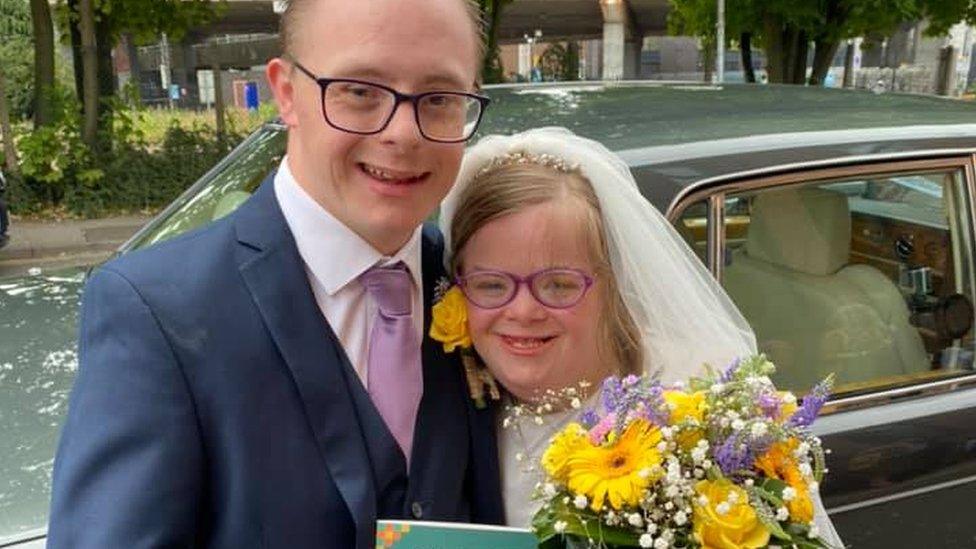'Down's syndrome abortion law doesn't respect my life'
- Published
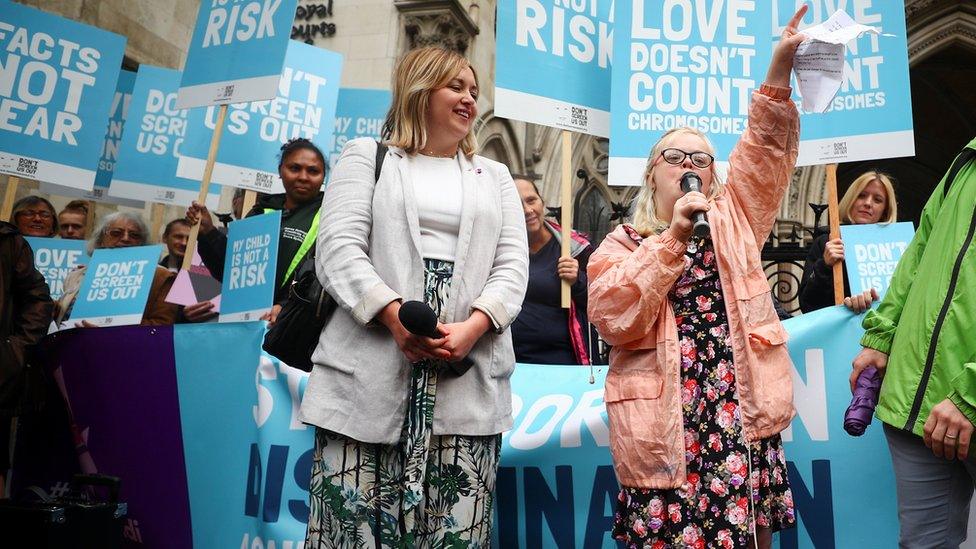
Heidi Carter (right) was joined outside the Royal Courts of Justice by fellow campaigner Máire Lea-Wilson
A woman with Down's syndrome who is challenging abortion law's stance on babies with the condition says the legislation "doesn't respect my life".
Heidi Carter, 26, from Coventry, is one of three claimants whose case against the UK government at the High Court began on Tuesday.
As law stands, foetuses with Down's syndrome may be terminated up to birth.
Jason Coppal QC, the claimants' barrister, told the High Court the current law "stereotypes and demeans".
He told Lord Justice Singh and Mrs Justice Lieven that claimant Máire Lea-Wilson "believes it is morally and ethically wrong to destroy a life on the grounds of a disability.
"But what we will try and establish is that it is legally wrong".
Lawyers argued at the two-day hearing that the law is incompatible with the European Convention on Human Rights and therefore unlawfully discriminatory.
"Two of the claimants are in the minority of foetuses who were diagnosed with the condition and not aborted and they live happy and fulfilling lives, as evidence shows the majority of people with Down's syndrome do," Mr Coppal told the court.
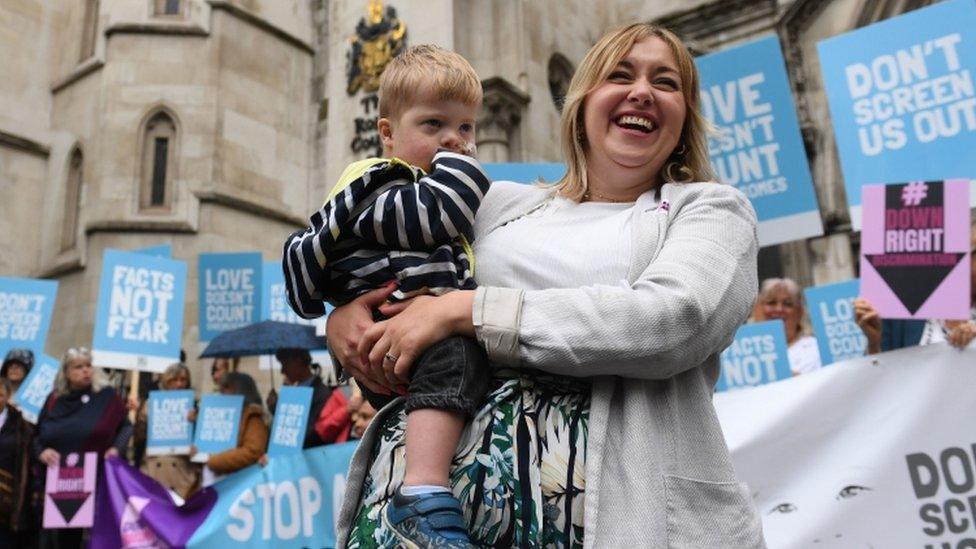
Máire Lea-Wilson, 33, said she was offered a termination two days before her son Aidan was born
In England, Scotland and Wales, there is a general 24-week time limit to have an abortion.
But law states terminations can be performed well beyond that window if there, external is "a substantial risk that if the child were born it would suffer from such physical or mental abnormalities as to be seriously handicapped", which includes Down's syndrome.
Mrs Carter, who campaigns under her maiden name of Crowter, said: "I am someone who has Down's syndrome and I find it extremely offensive that a law doesn't respect my life, and I won't stand for it.
"I want to change the law and I want to challenge people's perception of Down's syndrome. I want them to look at me and say 'this is just a normal person'."
Down's syndrome: Abortion case heads to High Court
Ms Lea-Wilson, of west London, said she was bringing the legal challenge because she wanted her son Aidan "to grow up knowing he's not someone people have to cope with, he's not a burden to society, he is a wonderful human being in his own right".
"I have two sons who I love and I value equally and I can't understand why the law doesn't."
She said: "I was 34 weeks pregnant when I discovered Aidan had Down's syndrome and I was asked if I wanted to terminate the pregnancy in the context of a lot of medically-biased information, and my own grief, three times.
"The last time I was asked to terminate the pregnancy was two days before he was born."
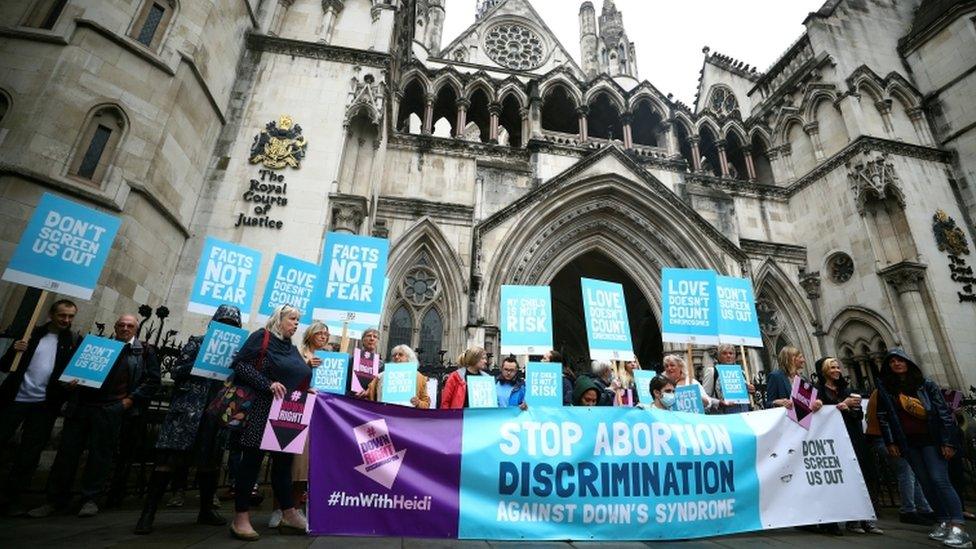
Protesters gathered outside the High Court ahead of the case
The challengers, supported by campaign group Don't Screen Us Out, held a demonstration outside the Royal Courts of Justice in London earlier.
Mrs Carter said the legal bid was not about challenging women's right to choose, which she respected.
But she said of expectant mothers whose unborn babies had been diagnosed with Down's syndrome: "I just want them to get the right information, and just meet someone who has [the condition]."
Clare Murphy, from the British Pregnancy Advisory Service, told BBC Breakfast: "We're talking about a relatively small number of abortions every year that take place after 24 weeks.
"These are incredibly challenging, heartbreaking circumstances involving often very, very much wanted pregnancies, where women have to make really tough decisions."

Follow BBC West Midlands on Facebook, external, Twitter, external and Instagram, external. Send your story ideas to: newsonline.westmidlands@bbc.co.uk, external
Related topics
- Published23 September 2021
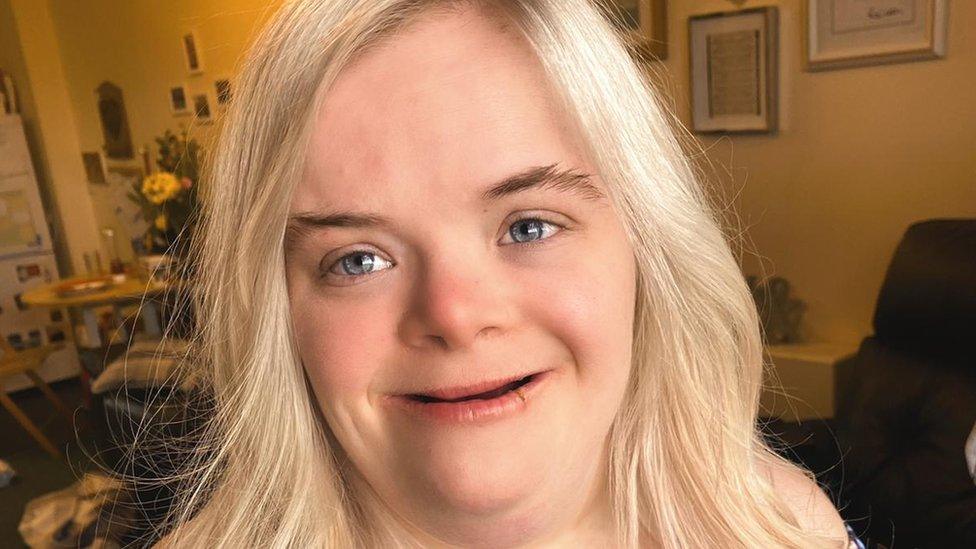
- Published5 May 2021
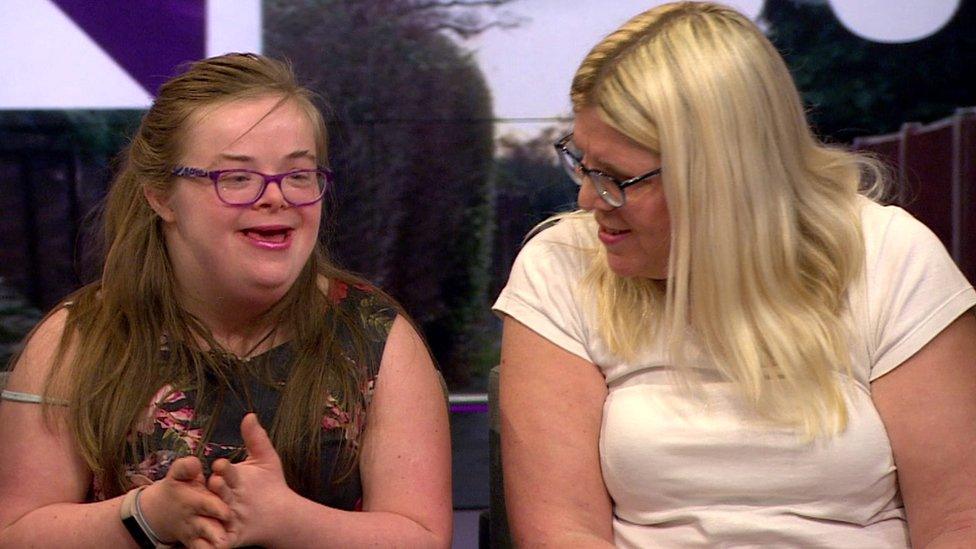
- Published25 October 2020
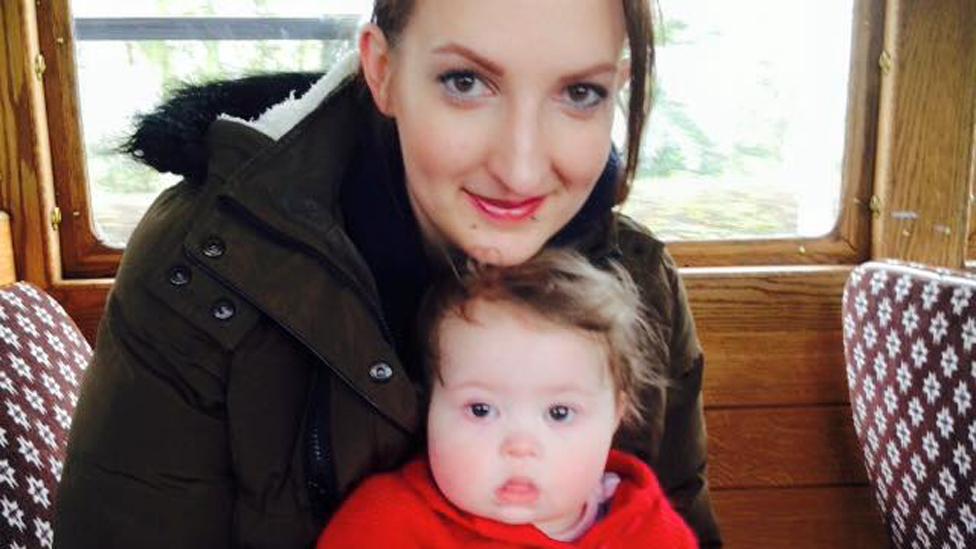
- Published15 October 2020
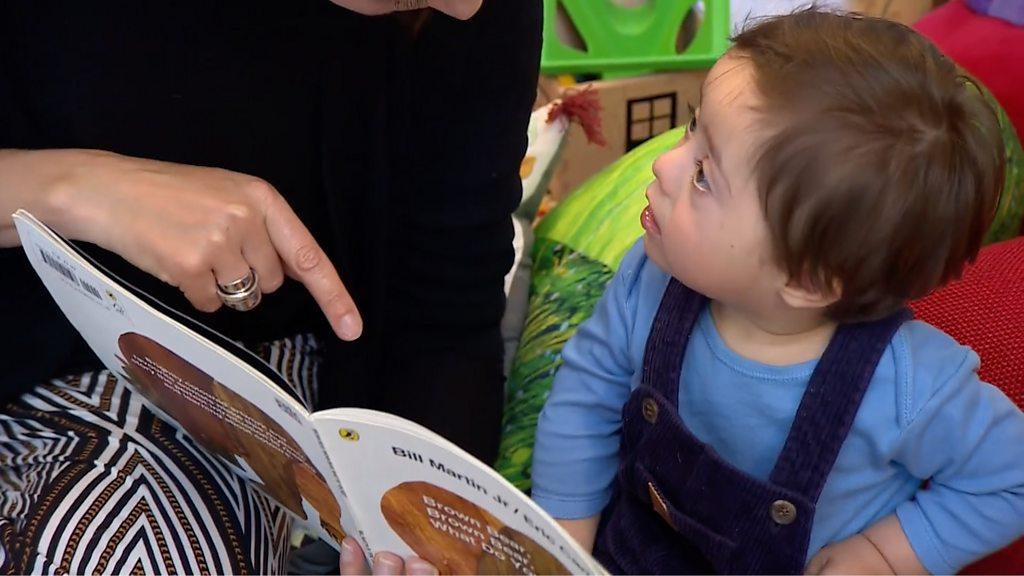
- Published6 July 2020
